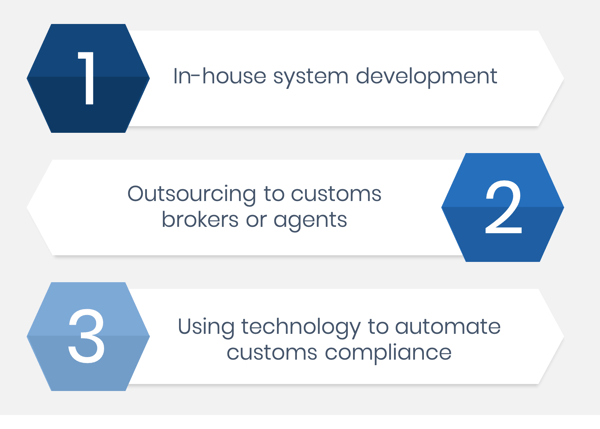As companies look at different ways to expand their businesses and become more competitive, inefficient processes and operations surrounding customs and trade are coming to the forefront. Today’s global economy all but demands participating in international trade, yet the laws are ever-changing, the requirements are complex, and scaling operations is resource-intensive. Customs managers are tasked with keeping the company in compliance, yet with a constantly shifting playing field, that is a lot easier said than done.

With Brexit looming, customs managers are faced with many uncertainties, however the one thing that remains certain is change. The ability to deliver strategic insights and a clear view of operations will set leading companies apart, allowing them to weather change and use it to grow and expand trade.
Customs compliance executives have three main options for managing import/export administration and compliance and optimizing their international trade operations: developing on-premises or in-house systems, outsourcing to customs brokers or agents, or automating compliance with specialized software that integrates with your existing systems.
Download our whitepaper “A Guide to Optimising International Customs and Trade Compliance” to assess the pros and cons of each alternative.
